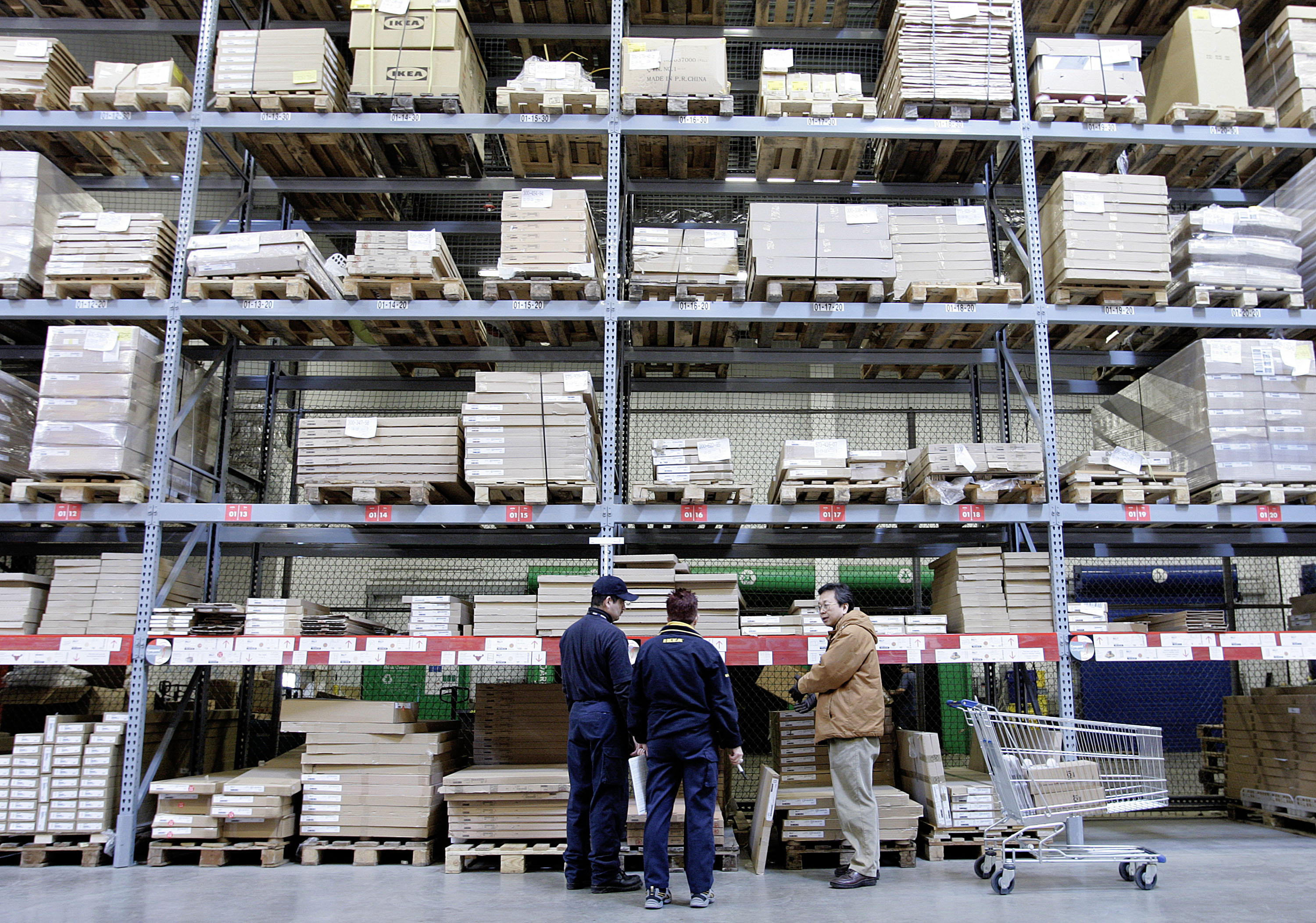Ikea's foray into the gig economy
"For those left baffled by the assembly instructions for an Ikea cabinet, help is on the way"

The smartest insight and analysis, from all perspectives, rounded up from around the web:
"For those left baffled by the assembly instructions for an Ikea cabinet, help is on the way," said Zlati Meyer at USA Today. The Swedish furniture giant announced last week that it has acquired TaskRabbit, a San Francisco–based startup that connects consumers with on-demand workers willing to do odd jobs around the house, such as fixing a broken toilet, hanging curtains, or — you guessed it — assembling Ikea furniture. Ikea, which didn't release financial details about the deal, said it hopes to use TaskRabbit's 60,000 freelancers in 40 U.S. cities and London to make it easier for customers to put together its shelves, sofas, and beds. Analysts praised the deal, saying that consumers might now choose Ikea over competitors "solely because the assembly service is practically built-in." This is Ikea's "first foray anywhere near Silicon Valley," said Saabira Chaudhuri and Eliot Brown at The Wall Street Journal. Many large, established companies are "grappling with big changes brought on by digitization," and they are turning to service-oriented tech firms "to help their business grow, or slow their decline."
Ikea isn't the first furniture company to team up with a handyman marketplace this year, said Adam Rogers at Wired. In May, Wayfair, the world's largest online-only furniture retailer, announced a partnership with Handy, a platform that connects people with repairmen and cleaners, to offer "one-click installation and assembly" at checkout. This "gig-plus" economy has a ton of upsides for big retailers such as Wayfair and Ikea. They "get to charge more for an added service" and access a new set of customers "who want to buy big-ticket items but don't want the hassle of assembly." Plus, they'll have fewer returns, because "people are less likely to send something back once it's built and installed." Being able to rely on gig workers helps the bottom line, too, said Leonid Bershidsky at Bloomberg. TaskRabbit workers are freelancers, so the company won't have to offer them overtime or "pay for their benefits." Ikea's move is also a bid to hang on to the crucial millennial market. In a recent poll of 2,000 U.S. millennials, 3 in 5 said they "struggle with basic DIY tasks." Ikea understands that message loud and clear: "More and more customers will be put off by the need to assemble furniture, and unless Ikea gets in on the assembly business, it will miss out on revenue."
The Week
Escape your echo chamber. Get the facts behind the news, plus analysis from multiple perspectives.

Sign up for The Week's Free Newsletters
From our morning news briefing to a weekly Good News Newsletter, get the best of The Week delivered directly to your inbox.
From our morning news briefing to a weekly Good News Newsletter, get the best of The Week delivered directly to your inbox.
There's another "not-so-obvious reason" that Ikea wanted an army of handymen, said Sonya Mann at Inc. The retailer conducts extensive ethnographic research — studying people's morning routines and what makes a home feel like a home — and "then shapes its products accordingly." But while Ikea knows a lot about what products people are willing to buy, it doesn't know as much about the services they are willing to pay for. Enter TaskRabbit, whose "huge trove of data" about the domestic jobs people are eager to outsource will help Ikea fill that gap. "There's no market research like going into people's homes and seeing how they live."
A free daily email with the biggest news stories of the day – and the best features from TheWeek.com
-
 Are pesticides making florists sick?
Are pesticides making florists sick?Under the Radar Shop-bought bouquets hide a cocktail of chemicals
-
 Will Trump’s 10% credit card rate limit actually help consumers?
Will Trump’s 10% credit card rate limit actually help consumers?Today's Big Question Banks say they would pull back on credit
-
 3 smart financial habits to incorporate in 2026
3 smart financial habits to incorporate in 2026the explainer Make your money work for you, instead of the other way around
-
 The pros and cons of noncompete agreements
The pros and cons of noncompete agreementsThe Explainer The FTC wants to ban companies from binding their employees with noncompete agreements. Who would this benefit, and who would it hurt?
-
 What experts are saying about the economy's surprise contraction
What experts are saying about the economy's surprise contractionThe Explainer The sharpest opinions on the debate from around the web
-
 The death of cities was greatly exaggerated
The death of cities was greatly exaggeratedThe Explainer Why the pandemic predictions about urban flight were wrong
-
 The housing crisis is here
The housing crisis is hereThe Explainer As the pandemic takes its toll, renters face eviction even as buyers are bidding higher
-
 How to be an ally to marginalized coworkers
How to be an ally to marginalized coworkersThe Explainer Show up for your colleagues by showing that you see them and their struggles
-
 What the stock market knows
What the stock market knowsThe Explainer Publicly traded companies are going to wallop small businesses
-
 Can the government save small businesses?
Can the government save small businesses?The Explainer Many are fighting for a fair share of the coronavirus rescue package
-
 How the oil crash could turn into a much bigger economic shock
How the oil crash could turn into a much bigger economic shockThe Explainer This could be a huge problem for the entire economy